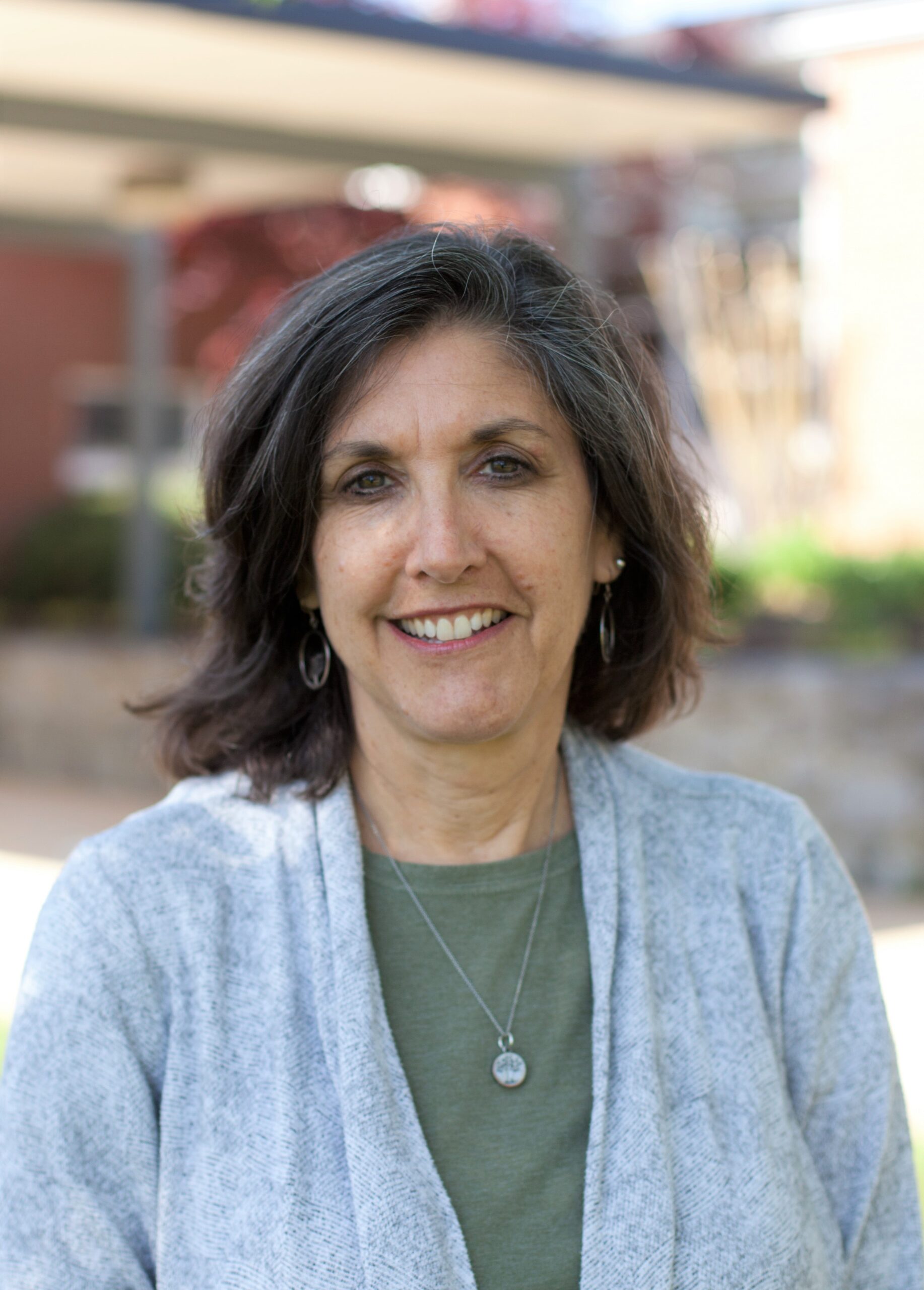This blog is in celebration of Teacher Appreciation Week. Thank you, teachers!
 Andrea Schrock Wenger has been an administrator and storyteller on behalf of Mennonite-affiliated organizations for more than 30 years. Currently, she is director of advancement for Eastern Mennonite School (K-12), in Harrisonburg, Virginia. Previously, she was director of marketing and communications for Eastern Mennonite University and worked for Mennonite Central Committee in Akron, Pennsylvania, and Whitesburg, Kentucky. She is a member of Community Mennonite Church in Harrisonburg and enjoys life with her husband, Delbert, relating to two young adult children, and all the pickleball, biking, and hiking she can fit in.
Andrea Schrock Wenger has been an administrator and storyteller on behalf of Mennonite-affiliated organizations for more than 30 years. Currently, she is director of advancement for Eastern Mennonite School (K-12), in Harrisonburg, Virginia. Previously, she was director of marketing and communications for Eastern Mennonite University and worked for Mennonite Central Committee in Akron, Pennsylvania, and Whitesburg, Kentucky. She is a member of Community Mennonite Church in Harrisonburg and enjoys life with her husband, Delbert, relating to two young adult children, and all the pickleball, biking, and hiking she can fit in.
___________________________
“A class with a lot of drama.” That’s how the fifth graders at Eastern Mennonite School, where I work, recently described themselves. That awareness led them to initiate a circle process to listen to one another deeply. Passing a stone “talking piece” around their student-led circle — twice, because they had so much to say! — ensured everyone listened, while only one person spoke at a time. The result: A typed list of hurtful comments they did not want to hear from one another. And alternative comment suggestions. Everyone signed the list as a commitment to do better.
The circle grew out of a social studies class, where they learned about ways people can work for positive change. Erika Gascho, the social studies teacher, invited small groups to name a problem they see in their school community and implement a plan to move toward change.
Other years, students have addressed issues such as littering and messy cubbies. To Erica’s delight, this year, all of the groups chose to tackle social dynamics, including friendship conflict, sportsmanship and hurtful comments, which created an inspiring turning point in class dynamics
Teacher Appreciation Week
Teacher Appreciation Week (May 1-8) is a time to celebrate teachers everywhere, for all the reasons. Under pay. Relentless needs in under-resourced settings. Exhausting work in even the most supportive settings. A pandemic.
This year, I am additionally cognizant of the impact made by teachers who bring an Anabaptist perspective to their roles. These are people who teach in Mennonite schools, Mennonites who teach in public school, graduates of our Mennonite college teacher education programs and parents who homeschool.
These educators model and teach ways of addressing conflict that are different from what children see the adults in the world modeling. I’m thankful that these teachers are shaping the next generation.
A Mental Health Crisis
Shannon Roth, Eastern Mennonite School U.S. history and government teacher, went to college to pursue a career in ministry. Midway through, she changed her Bible major to secondary education.
“I didn’t become a minister,” Shannon has been heard to muse.
The high school principal Justin King, calls her out, saying “You ARE a minister! Our teachers are ministers in the Anabaptist-tradition every day. And the world needs Anabaptist education now more than ever.”
Thirty years ago, the “gravest public health threats to teenagers in the United States came from binge drinking, drunken driving, teenage pregnancy and smoking,” according to Matt Richtel in a New York Times piece, “’It’s Life or Death’: The Mental Health Crisis Among U.S. Teens.“ While these factors have fallen sharply, a new public health concern has risen to the top: soaring rates of mental health disorders.
School teachers and administrators are at the forefront of this crisis.
I see how teachers at my Mennonite school model Jesus’ care for the “least of these,” create a sense of belonging for those on the margins, seek justice in broken systems, offer compassionate care and seek a “third way” for managing conflict. I acknowledge the hundreds (thousands?) of Mennonite-Anabaptist teachers in public school settings who do the same, perhaps without administrative support, at times.
They do this in classrooms and dining halls, on playgrounds and during field trips, as they sponsor clubs and plan events, coach teams, direct plays, conduct choirs, share food, interact with parents, take in professional development, and sit through another faculty meeting.
I see Mennonite-Anabaptist teachers who counsel, facilitate, encourage, console and listen in Jesus ways.
Join me in “seeing” these peacemakers and kingdom builders.
We appreciate you.
The views and opinions expressed in this blog belong to the author and are not intended to represent the views of the MC USA Executive Board or staff.

